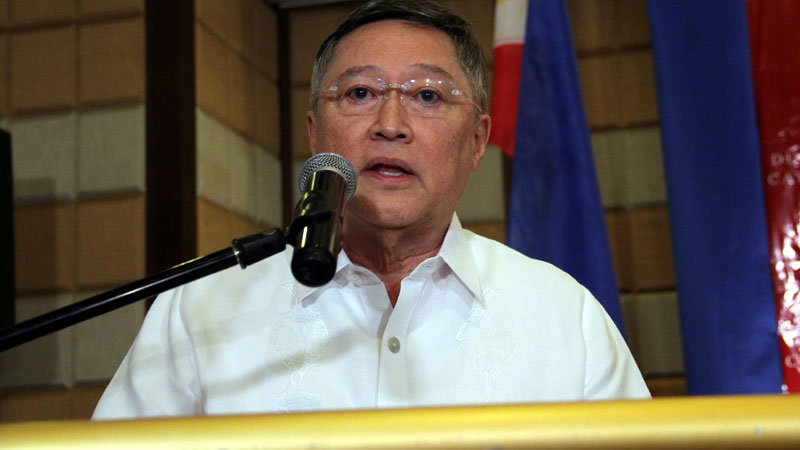Finance chief bucks VAT hike plan
Finance Secretary Carlos G. Dominguez III Monday said he was cold to proposals to increase the value-added tax (VAT) being slapped on a number of goods and services.
Separately, the Senate leadership is supportive of the economic managers’ proposal to make tax evasion a predicate crime to money laundering and ease the bank secrecy law for taxation purposes, Senate President Aquilino “Koko” Pimentel III told reporters on the sidelines of the 112th anniversary of the Bureau of Internal Revenue.
In a speech, Dominguez said he was “inclined against” the proposal to raise VAT to 14 percent from 12 percent at present to offset the foregone revenues to result from President Duterte’s promise to bring down the personal and corporate income tax rates, which were among the highest in the region.
“By some estimates we could double VAT collections simply by being more efficient in collecting it,” Dominguez said.
DOF estimates showed an estimated P82-billion gain if the VAT rate is increased to 14 percent.
The DOF plans to submit for Congress’ consideration a “revenue-positive” comprehensive tax reform package in September.
Pimentel said the Senate plans to pass a comprehensive tax reform within a year for it to take effect by 2018. “Tax reform has been promised by President Duterte and Congress is ready with the data and with the arguments in its favors, so we will prioritize it.”
The Senate also supported the DOF’s pitch to relax the country’s strict bank secrecy law and make tax evasion a predicate crime to money laundering, Pimental added. The Philippines is one of the only three countries in the world where there remains a bank secrecy law as well as one of just two countries under whose antimoney laundering law tax evasion is not a predicate crime.
Budget Secretary Benjamin E. Diokno earlier said that the comprehensive tax reform package would also include increasing the levy on soft drink and petroleum products as well as rationalizing the tax perks being given away to investors.
Dominguez had said that “now is the time” to raise the excise tax slapped on oil products, whose rates have remained low and unadjusted to inflation since almost two decades ago.
The DOF’s proposal was to increase during the first year to P10 a liter the levy on regular gasoline and other products that are presently imposed positive excise tax rates, such as aviation turbo jet fuel, lubricating greases and oils, leaded and unleaded premium gasoline, naphtha as well as petrolatum and waxes.
An increase to P6 a liter, meanwhile, has been proposed by the DOF for diesel as well as other products currently exempted from excise tax, including asphalt, bunker fuel oil, denatured alcohol used for motive power, kerosene, liquefied petroleum gas (LPG) and processed gas.
The DOF proposal also sought indexation of excise tax rates by 4 percent every year, although the government should provide subsidy when crude oil prices hit more than $90 a barrel.
An economics working paper published by Manila-based multilateral lender Asian Development Bank (ADB) last month titled “Determinants of Consumer Price Inflation versus Producer Price Inflation in Asia” noted that “for the Philippines and Singapore, the pass-through to producers and consumers did not increase during the recent global oil price decline.”
“This could reflect no significant adjustments in policy measures relating to energy and energy-related sectors and more or less stable oil use intensity and energy efficiency,” read the paper authored by ADB principal economist Donghyun Park as well as Thammasat University assistant professor Juthathip Jongwanich and lecturer Petchtharin Wongcharoen.


